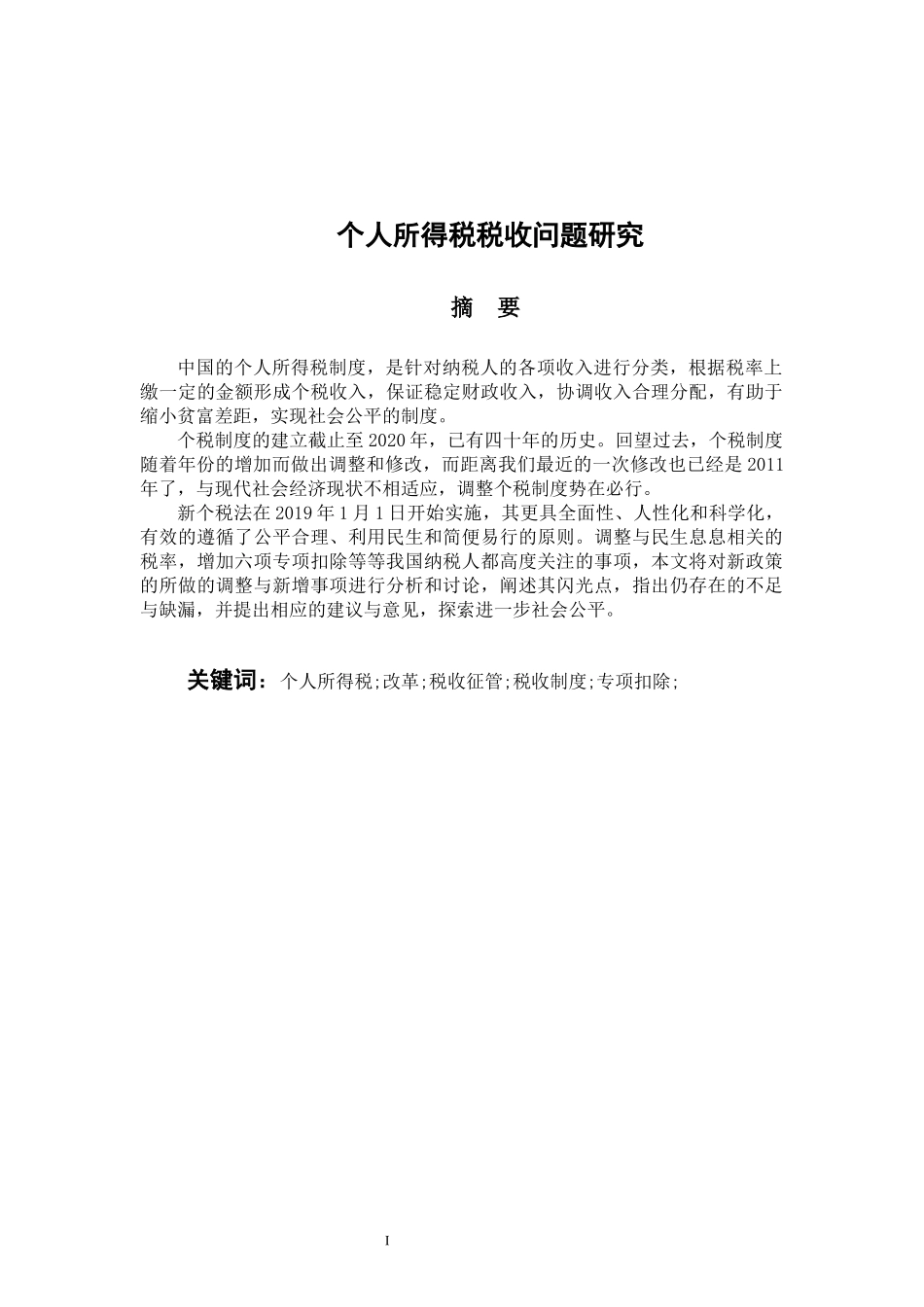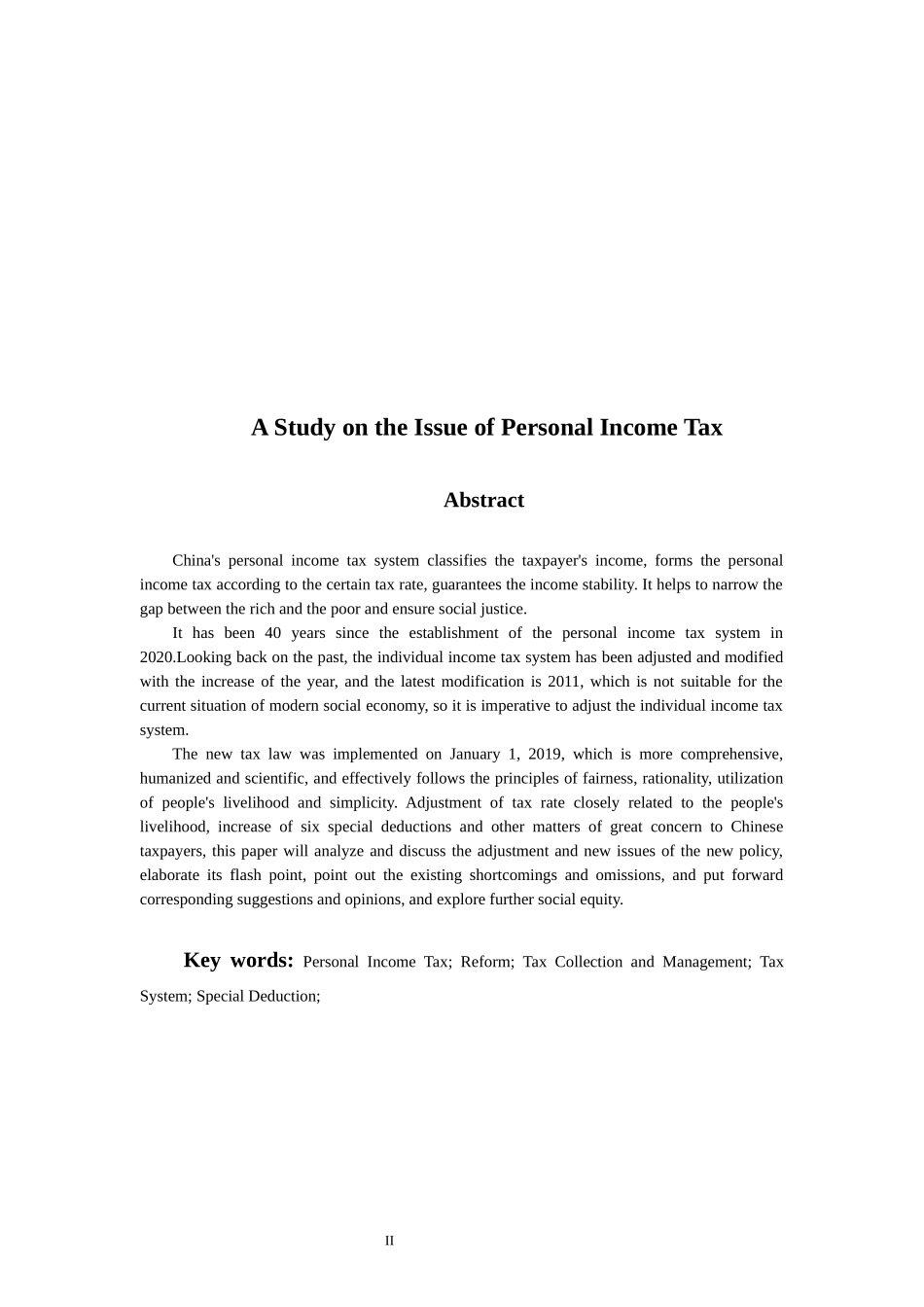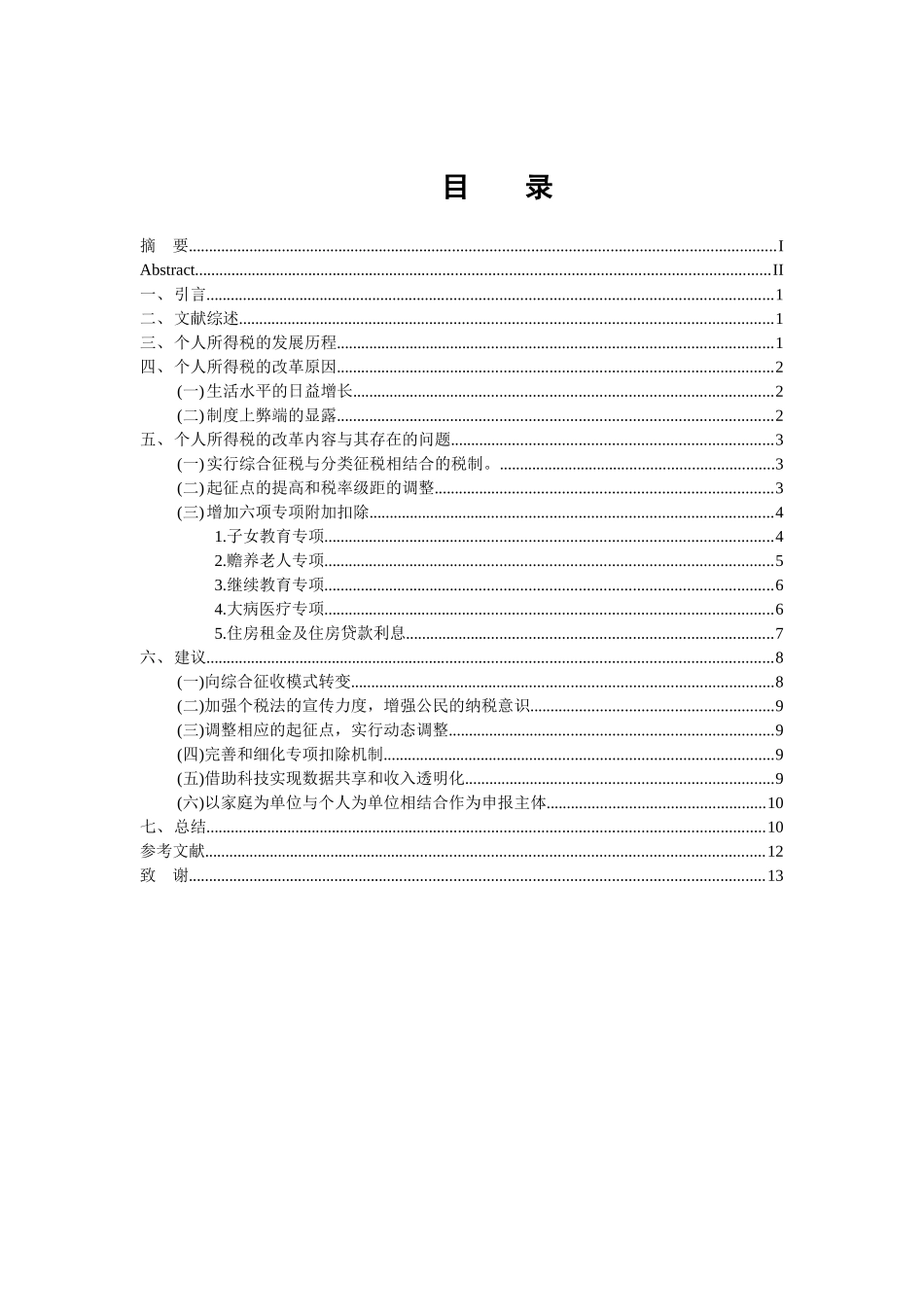I个人所得税税收问题研究摘 要中国的个人所得税制度,是针对纳税人的各项收入进行分类,根据税率上缴一定的金额形成个税收入,保证稳定财政收入,协调收入合理分配,有助于缩小贫富差距,实现社会公平的制度。个税制度的建立截止至 2020 年,已有四十年的历史。回望过去,个税制度随着年份的增加而做出调整和修改,而距离我们最近的一次修改也已经是 2011年了,与现代社会经济现状不相适应,调整个税制度势在必行。新个税法在 2019 年 1 月 1 日开始实施,其更具全面性、人性化和科学化,有效的遵循了公平合理、利用民生和简便易行的原则。调整与民生息息相关的税率,增加六项专项扣除等等我国纳税人都高度关注的事项,本文将对新政策的所做的调整与新增事项进行分析和讨论,阐述其闪光点,指出仍存在的不足与缺漏,并提出相应的建议与意见,探索进一步社会公平。关键词:个人所得税;改革;税收征管;税收制度;专项扣除; IIA Study on the Issue of Personal Income Tax Abstract China's personal income tax system classifies the taxpayer's income, forms the personal income tax according to the certain tax rate, guarantees the income stability. It helps to narrow the gap between the rich and the poor and ensure social justice.It has been 40 years since the establishment of the personal income tax system in 2020.Looking back on the past, the individual income tax system has been adjusted and modified with the increase of the year, and the latest modification is 2011, which is not suitable for the current situation of modern social economy, so it is imperative to adjust the individual income tax system.The new tax law was implemented on January 1, 2019, which is more comprehensive, humanized and scientific, and effectively follows the principles of fairness, rationality, utilization of people's livelihood and simplicity. Adjustment of tax rate closely related to the people's livelihood, increase of six special deductions and other matters of great concern to Chinese ...












